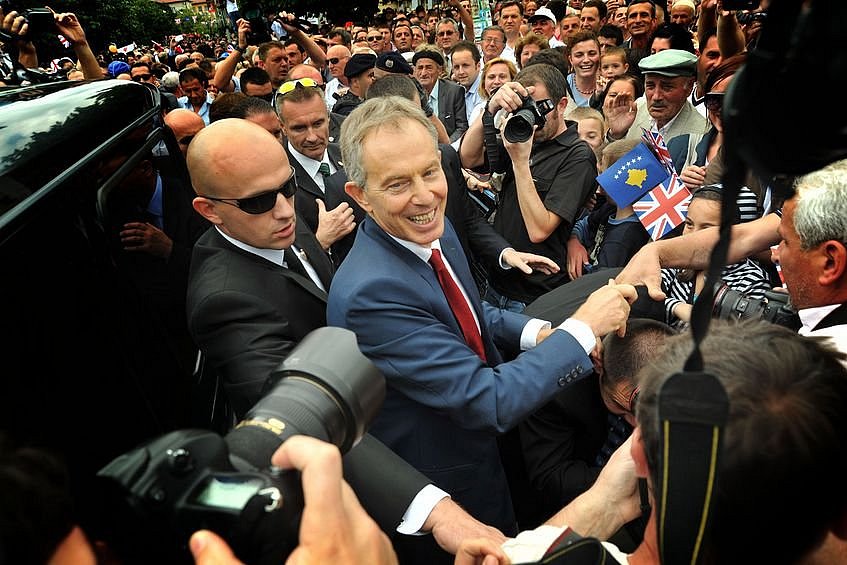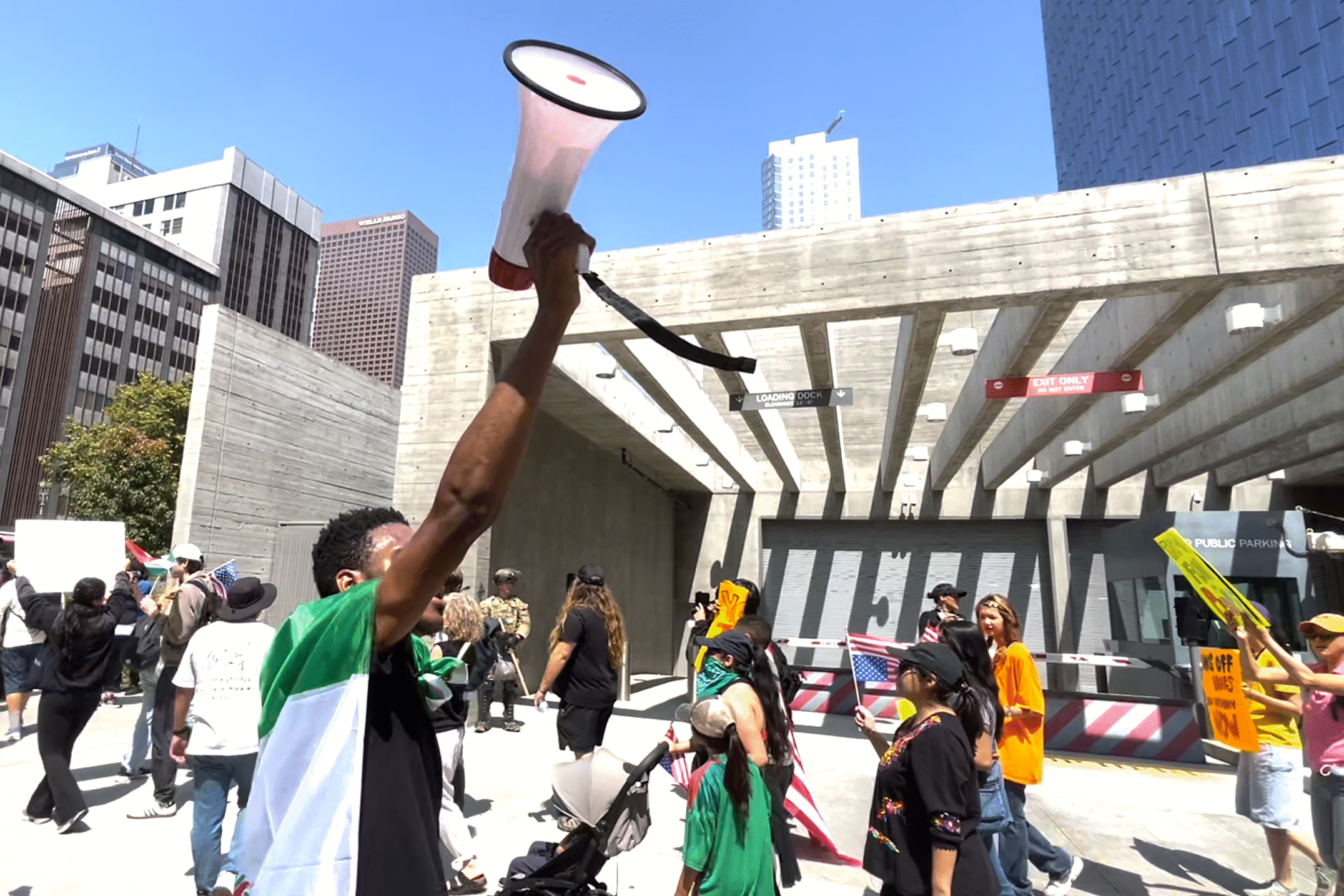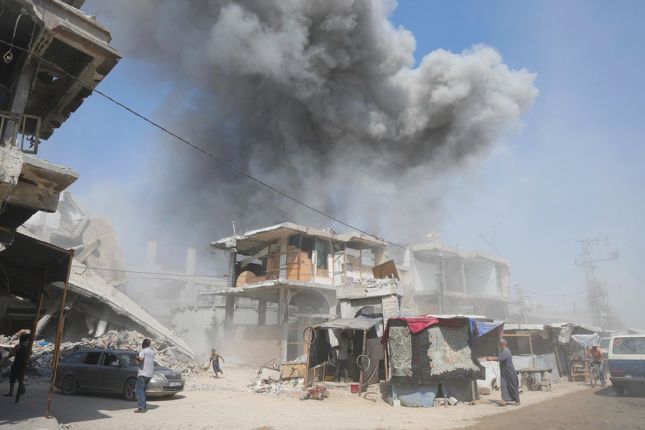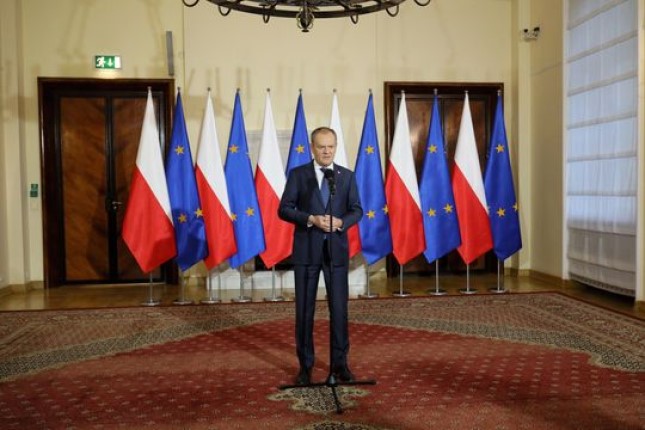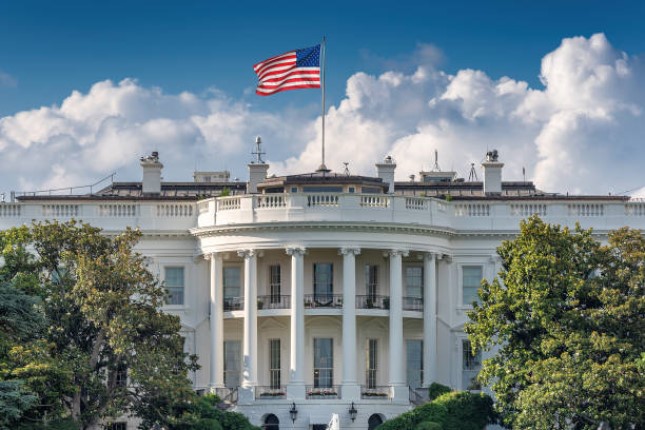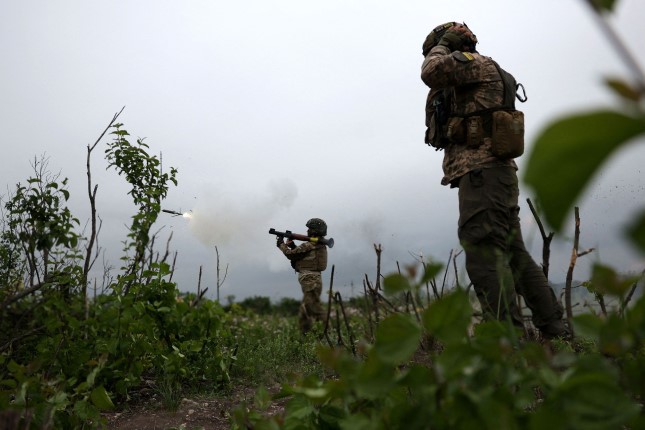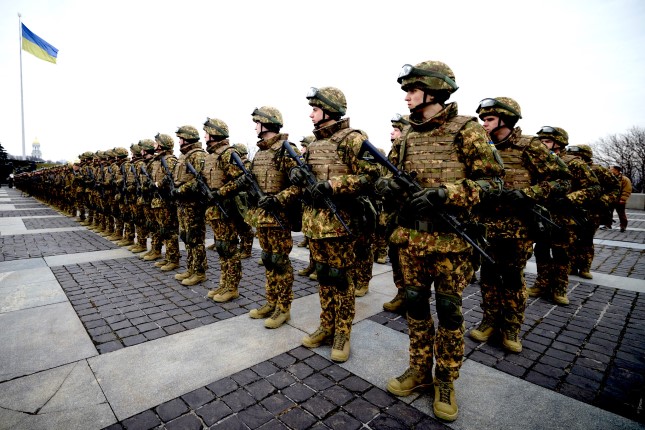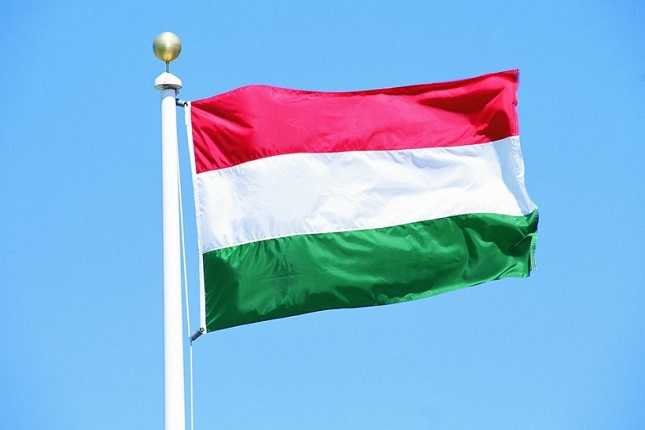On 28 April 1999, prime minister Tony Blair’s adviser John Sawers wrote a memo to his boss proposing a change in U.K. policy towards the war in Kosovo.
Sawers said the U.K. should give “practical help” to the Kosovo Liberation Army (KLA), the militia force that was fighting Serbians in Kosovo allied to Slobodan Milosevic’s Yugoslavia.
The U.K. and NATO had been bombing Yugoslavia for a month up to this point, to defeat its army in Kosovo. The new policy, Sawers wrote, should include providing “non-lethal material” to the KLA, and “early meetings with the leadership to offer them help.”
In particular, this support could help U.K. and NATO forces bomb Serb positions, or “increase our targeting information inside Kosovo,” as Sawers put it. “Your enemy’s enemy is your friend,” he added, in a document released to the National Archives. “I agree,” says an unsigned message on the document, which is noticeably in the handwriting of Tony Blair.
Blair and Sawers were aware of the nature of the KLA. Sawers’ message mentioned “organised crimes/drugs etc.” in which the KLA was believed to be involved.
Indeed, British declassified files covering 1998 and early 1999 show officials were under no illusions about the KLA’s promotion of terrorism.
Fast forward a quarter of a century and four senior members of the KLA, including its leader Hashim Thaci, are on trial at The Hague charged with war crimes and crimes against humanity allegedly conducted in 1998-99.
They deny the charges which include murder, enforced disappearances, persecution, and torture.
Thaci’s legal team are this week beginning the defence of their client in court. For how much longer can ministers and officials in the Blair government escape accountability for their support of the KLA?
‘Violent activities’
The victims of the KLA’s alleged crimes include Serbs, Roma and ethnic Albanians who were deemed collaborators with Serbian forces or political opponents.
The prosecutor in The Hague alleges that the four accused formed part of a joint criminal enterprise to control Kosovo by “unlawfully intimidating, mistreating, committing violence against, and removing those deemed to be opponents.”
The U.S. and Britain clearly recognised the KLA as a terrorist organisation at the time. In February 1998, the Bill Clinton administration’s special envoy to Kosovo, Robert Gelbard, described the militia as “without any question a terrorist group.”
Similarly, Blair’s foreign secretary Robin Cook told parliament in March 1998: “We strongly condemn the use of violence for political objectives, including the terrorism of the self-styled Kosovo Liberation Army.”
The British files show Cook told Blair of the KLA’s “campaign of violence” in the province in May 1998. A few months later, Michael Pakenham, the chair of the Joint Intelligence Committee, was writing that the KLA “is exploiting the plight of civilians, and itself appears to have committed atrocities against Serbs.”
Involvement of some KLA members in criminality was common knowledge. Brian Donnelly, Britain’s ambassador in Belgrade, told the Foreign Office in June 1998 that “some, at least, in the KLA, are likely to be first cousins of the Albanians who are running organised crime and drug running throughout Europe.”
Throughout 1998, the files show U.K. officials expressing concern that if the U.K. or NATO were to start bombing the Milosevic regime — which they soon did — the KLA would benefit. “Carrying out airstrikes would promote UCK [KLA] victory,” the Foreign Office wrote in June 1998.
Even when Cook proposed in September 1998 a “more forceful strategy” towards Milosevic — involving an ultimatum backed by the threat of force — he recognised the problem that “any NATO intervention would greatly benefit the Kosovar fighters (UCK)” and advance their “independence agenda.”
‘Assassinations’
Right up to the change in policy in the spring of 1999, British officials had no illusions about the nature of the KLA. “KLA does contain unsavoury elements,” a Foreign Office report of April 1999 noted. These were described as “unreconstructed Marxists, hardline nationalists” and with “links to drugs/crime.”
Yet the same paper recommended “carrying forward our relationship with the KLA.” It added: “We should intensify our political dialogue with Thaqi [sic] and other KLA leaders.”
In particular, this could “encourage information flow between NATO and the KLA on e.g. location of IDPs/Serb forces.” However, “we need to be wary of accusations that NATO is acting as the KLA’s airforce.”
In fact, evidence suggests that Blair’s agreement to Sawers’ memo had already been accompanied by a dramatic policy change around this time.
Ten days before the Sawers proposal to Blair, the Sunday Telegraph, apparently briefed by Ministry of Defence officials, reported that SAS [Special Air Service] teams were advising the KLA at camps in northern Albania where the KLA had launched a major recruitment and training operation.
KLA officers were being taught about intelligence gathering on Serbian positions, the paper reported.
The following month, Scotland on Sunday reported that the SAS was training the KLA and supplying it with electronic equipment designed to help guide NATO bombs on to Serb targets. The British training was said to be taking place at NATO bases in central Europe and was coordinated with the U.S.
The report also included claims by a former member of the SAS that the training involved “more sensitive areas of warfare, such as sabotage, counter insurgence [sic] and spot assassinations.”
Arms supplies
By August, occasional British media reports were highlighting the SAS operating directly with the KLA on missions in Kosovo. The Mirror, for example, reported that an SAS team killed 17 Serbs working alongside a KLA unit.
Scotland on Sunday, citing military sources in London, reported that it was the U.S. Defence Intelligence Agency that had approached MI6 to train the KLA. MI6 then sub-contracted the operation to two British security companies who in turn approached a number of former members of the SAS.
“Lists were then drawn up of weapons and equipment needed by the KLA,” the paper noted.
Later reports observed that several KLA leaders had the mobile phone number of then NATO commander, General Wesley Clark.
After the war Thaci went on to become president of an independent Kosovo, and ironically championed the establishment of the special court in The Hague which is now trying him. His defence team argues that the four KLA men did not have control over members of what was a loosely-organised guerrilla force without a rigid military structure.
John Sawers went on to become head of MI6. He now sits on the board of oil corporation, BP.
Source: Consortium News.
